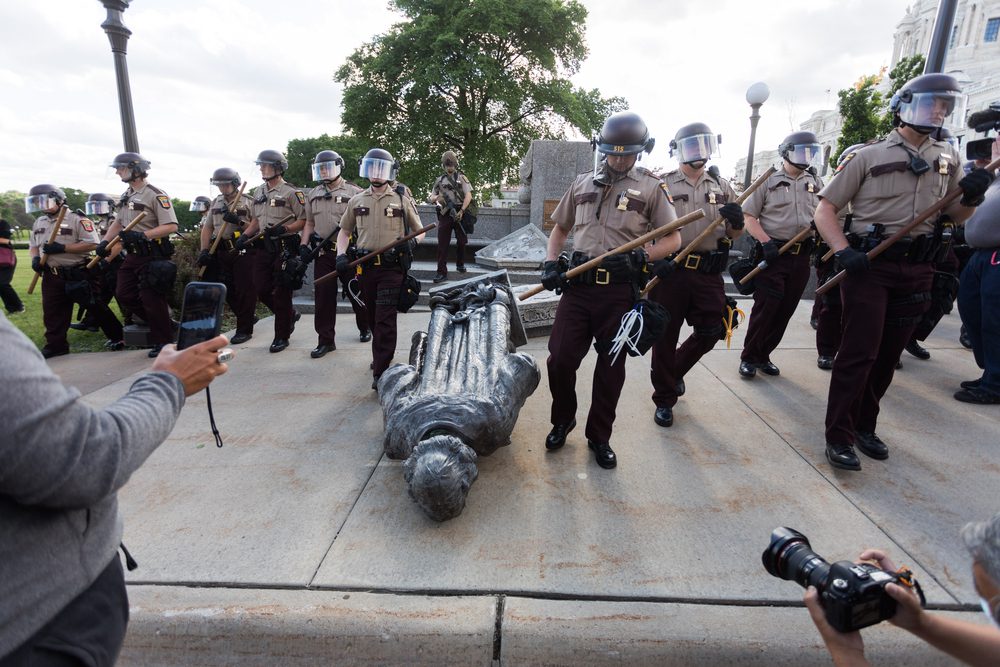
Sid Salter
- Columnist Sid Salter writes that Grisham’s new non-fiction book releases against the backdrop of another high-profile Mississippi death penalty case.
A self-described “just about full-time grandparent” to three grandchildren, bestselling Mississippi author John Grisham is a few months shy of his 70th birthday – some facts that belie his packed calendar this month.
The author of fifty consecutive #1 bestsellers translated into some 50 languages, Grisham’s latest novel “Camino Ghosts” was released this summer. The recent Grisham works “The Exchange: After The Firm” updated the journey of “The Firm’s” Mitch McDeere and the third Jake Brigance novel “A Time for Mercy” is being developed as a limited HBO series.
For the first time since his groundbreaking 2006 non-fiction book “The Innocent Man: Murder and Injustice in A Small Town,” Grisham has collaborated with Jim McCloskey to produce a new non-fiction book that builds on the theme of wrongful convictions. The book, entitled “Framed: Astonishing True Stories of Wrongful Convictions” was set to release Oct. 15.
Grisham for many years has been passionate about what he sees as deep, systemic flaws in the criminal justice system particularly as it relates to wrongful convictions and the death penalty. “The Innocent Man” gave rise to a powerful six-part Netflix documentary series on wrongful convictions.
The author, known for his work and support of Christian missions in South America through the Southern Baptist International Missions Board, is also a board member of The Innocence Project and McCloskey’s Centurion Ministries, the first national organization dedicated to freeing innocent people who the organization believes have been wrongly convicted.
Grisham’s new non-fiction book releases against the backdrop of another high-profile Mississippi death penalty case. Earlier this month, the case of Richard Gerald Jordan, 78, the state’s longest-serving Death Row inmate, drew national headlines.
Jordan, convicted of the 1976 kidnapping and murder of Edwina Marter of Gulfport, a banker’s wife. Jordan and his attorneys have made multiple federal and state appeals, but the most recent arguments have centered on a 2017 U.S. Supreme Court ruling on the use of independent mental health expert testimony.
Mississippi Attorney General Lynn Fitch has asked the court to set an execution date for Jordan. Fitch’s office has argued that Jordan’s federal and state legal remedies “have been exhausted.”
If Grisham’s own publishing and advocacy interests aren’t enough to keep him busy, Grisham is scheduled this week to moderate a tour appearance by former First Lady and former U.S. Secretary of State Hillary Clinton in Durham, North Carolina. Clinton’s latest book, “Something Lost, Something Gained: Reflections of Life, Love and Liberty” was released last month.
After four decades in public life, Grisham is famous enough, wealthy enough and secure in his own skin enough to choose his friends, his causes and the investment of his time in things and people in which be believes and share commonality. He has made an art form of not being pulled into other people’s drama – that despite having no fear of speaking his mind on matters of public policy and the law.
He remains a disciplined, workaday writer. He’s never talked about awaiting the arrival of mystic inspiration or a “muse.” He does talk about getting up early, putting in the time writing, and hitting deadlines.
Grisham told interviewer Christina Ianzito recently: “I get into the habit of getting up early and going to the computer around 7 or 7:30. In my little writing room, there are no phones, no fax, no internet, no music, no disturbances – nothing but the same brand of strong coffee, the same coffee cup. I sit there for several hours, just in another world. After 35 years, I still treasure those moments. But after four or five hours, I’ve got to have a break. My mind is kind of muck.”
I look forward to reading Grisham’s second major work of non-fiction. The nation’s criminal justice system, for good or ill, drives a great deal of the political division and public mistrust in our divided nation. I’m glad people of goodwill with a strong moral compass – like Grisham – are talking about these issues in the public square.







